(1) CITY TECH SF SYMPOSIUM. The Program and Registration for the 8th Annual City Tech Science Fiction Symposium on Science Fiction, Gender, and Sexuality will be held on Thursday, November 30, 2023 from 9:00 a.m.-5:00 p.m Eastern (GMT/UTC -5 hours) online via Zoom Webinar.
To participate in this free event, attendees will need to do these two things: (1) Signup for a free Zoom account here (if you don’t already have one), and (2) Register here to receive access instructions to the Zoom Webinar. Participants may register any time before or during the event!
For those who would like to watch the event without registering, you can join the YouTube Livestream here (click on the top-most video labeled “Live”).
One of the sessions will include these papers:
2:15-3:05pm:
Paper Session 4
Moderator -Leigh Gold
Omotoyosi Odukomaiya – Identity, Otherness and Alterity in Nnedi Okorafor’s Lagoon and Tade Thompson’s Rosewater
Nikki Paige Gallant – Romantic Disability Studies: The Female Cyborg in Samuel Taylor Coleridge’s “Christabel”
Jacob Adler – Speculative Fiction and the “Illusory Woman”
Jo Ann Oravec – You May Now Kiss the Robot: Human-Robot Marriages in Science Fiction Literature and Movies
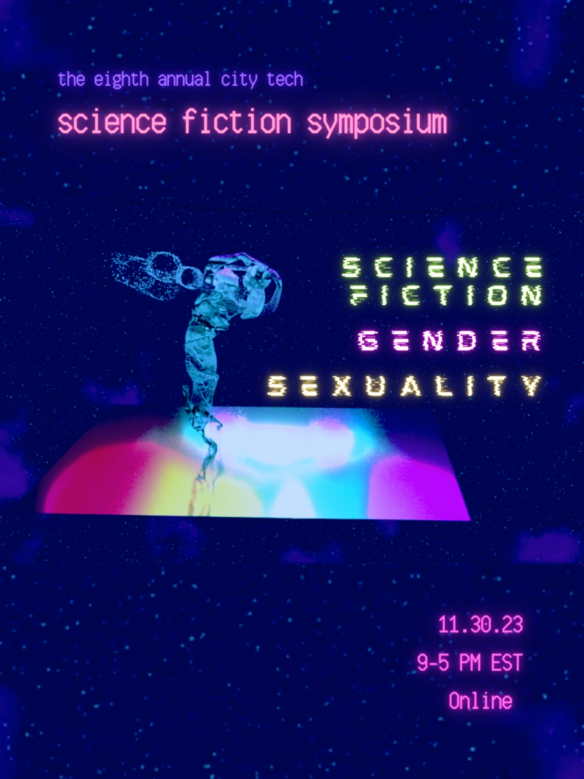
(2) TREASURED CHESTS. Adam Roberts begins by reminding readers how Robert E. Howard wrought the original Conan before dryly passing judgment on Robert Jordan’s continuation of the series and its infinite breast references. When Roberts says the “writing throughout is of the calibre one would expect from the author of The Wheel of Time” it is not meant as flattery. “Robert Jordan, ‘The Conan Chronicles: 2’ [‘Conan the Magnificent’ (1984); ‘Conan the Triumphant’ (1983); ‘Conan the Victorious’ (1984)”.
…Conan often swears by ‘Crom’, his god; but Crom is a much more Lovecraftian deity than (say) Thor or Ares:
“Conan’s gods were simple and understandable; Crom was their chief, and he lived on a great mountain, whence he sent forth dooms and death. It was useless to call on Crom, because he was a gloomy, savage god, and he hated weaklings. But he gave a man courage at birth, and the will and might to kill his enemies, which, in the Cimmerian’s mind, was all any god should be expected to do.” [Howard, ‘The Tower of the Elephant’ (1933)]
It is splendid, and it lifts the adventuring out of the banality wish-fulfilment. Going through the stories I was struck by how powerful and memorable they are.
+++
From, as they say, the sublime to the ridiculous. Having read Howard I was curious as to how his various continuers compared. They did not, constant reader, compare well….
(3) FACES SHOULD BE RED, NOT JUST THE PLANET. Ars Technica reviewer Chris Lee hears a discouraging word about colonizing Mars: “A City on Mars: Reality kills space settlement dreams”.
Let me start with the TLDR for A City on Mars. It is, essentially, 400 pages of “well, actually…,” but without the condescension, quite a bit of humor, and many, oh so many, details. Kelly and Zach Weinersmith started from the position of being space settlement enthusiasts. They thought they were going to write a light cheerleading book about how everything was going to be just awesome on Mars or the Moon or on a space station. Unfortunately for the Weinersmiths, they actually asked questions like “how would that work, exactly?” Apart from rocketry (e.g., the getting to space part), the answers were mostly optimistic handwaving combined with a kind of neo-manifest destiny ideology that might have given Andrew Jackson pause.
The Weinersmiths start with human biology and psychology, pass through technology, the law, and population viability and end with a kind of call to action. Under each of these sections, the Weinersmiths pose questions like: Can we thrive in space? reproduce in space? create habitats in space? The tour through all the things that aren’t actually known is shocking. No one has been conceived in low gravity, no fetuses have developed in low gravity, so we simply don’t know if there is a problem. Astronauts experience bone and muscle loss and no one knows how that plays out long term. Most importantly, do we really want to find this out by sending a few thousand people to Mars and hope it all just works out?
Then there are the problems of building a habitation and doing all the recycling. I was shocked to learn that no one really knows how to construct a long-term habitable settlement for either the Moon or Mars. Yes, there are lots of hand-wavy ideas about lava tubes and regolith shielding. But the details are just… not there. It reminds me of Europe’s dark days of depositing colonies on other people’s land. The stories of how unprepared the settlers were are sad, hilarious, and repetitive. And, now we learn that we are planning for at least one more sequel….
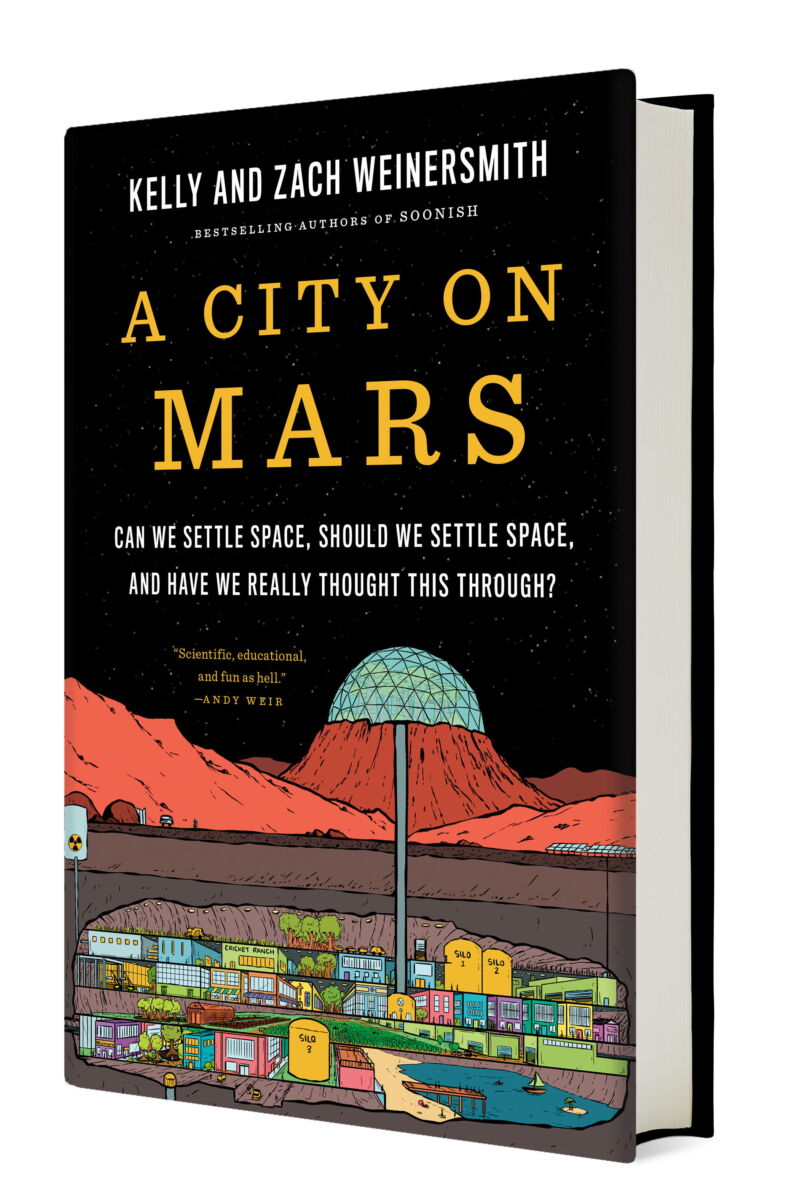
(4) NEGATORY GOOD BUDDY. Far Out Magazine found the tablets listing “Ayn Rand’s 13 commandments for making capitalist movies”. Every one starts with the word “Don’t”.
…An often-revered, equally maligned philosopher and unashamed champion of capitalism, Ayn Rand managed to weave her steadfast and forthcoming ideology into her works as an artistic writer. As a capitalist, Rand’s novels The Fountainhead and Atlas Shrugged mirrored her belief in individualism and the pursuit of material gain….
…When it came to creating pro-capitalist movies, Rand felt that there were specific criteria that directors and writers ought to stick to and in 1947, she wrote the ‘Screen Guide for Americans’, a pamphlet that was meant to heighten awareness in Hollywood studio producers of a growing pro-communist sentiment.
“The purpose of the Communists in Hollywood,” she wrote, “Is not the production of political movies openly advocating Communism. Their purpose is to corrupt our moral premises by corrupting non-political movies — by introducing small, casual bits of propaganda into innocent stories — thus making people absorb the basic premises of Collectivism by indirection and implication.”…
The 13 commandments are at the link.
(5) WHO REMEMBERS. “’I made the Daily Mail incredibly angry’: stars share their Doctor Who moments – part five” in the Guardian.
Juno Dawson (writer of the Doctor Who: Redacted audio series, 2022 onwards)
When Tegan Jovanka leaves the Doctor, she tells him she can no longer witness the bodies piling up around them. “It’s stopped being fun, Doctor!”, she wails. I often apply that rule to my life, too. If it stops being fun, get out. Some 20 years later, Martha Jones chooses herself over a life of pining after the Doctor. She explains about her university friend’s unrequited love for their flatmate. Martha won’t repeat her pattern, and she gets out. It’s one of the most explicitly feminist moments in the show.”
(6) D.G. COMPTON (1930-2023). Sff writer D.G. Compton, winner of the 2021 Cordwainer Smith Rediscovery Award, died November 10 reports the Arrowhead SF Foundation.

We received sad news today that David Guy Compton, who wrote as D. G. Compton, passed away this morning at the age of 93 where he had lived in Maine for many years. David was born in London, England in 1930 and moved to the US some years later.
We had the great pleasure of having David visit us in Milford for the Black Bear Film Festival the year DEATH WATCH, the 1979 Bertrand Tavernier film based on his book, THE CONTINIOUS KATHERINE MORTENHOE was featured on the main stage. It was a delightful and memorable weekend.
D. G. Compton was always writing, with his most recent novel, SO HERE’S OUR LEO, being published by Wildside Press in April of 2022. Besides THE CONTINIOUS KATHERINE MORTENHOE – an “author’s cut” of which was published by NYRB Classics in 2016 — his many wonderful titles include THE STEEL CROCODILE, FAREWELL EARTH’S BLISS, and SYNTHAJOY, as well as numerous crime novels written as Guy Compton and gothic romances as Frances Lynch. David was also an authority on stammering, writing a nonfiction book on the subject, STAMMERING: ITS NATURE, HISTORY, CAUSES AND CURES.
David was awarded the 2021 Cordwainer Smith Rediscovery Award and was also honored as the Science Fiction and Fantasy Writers Association’s Author Emeritus in 2007. He is survived by his step son, Toby Savage and many friends. We will greatly miss him.
The best way you can honor David Compton is to go read one of his books.
(7) TODAY’S BIRTHDAYS.
[Written by Cat Eldridge.]
Born November 26, 1919 — Frederik Pohl. (Died 2013.) He’s one of those writers that I’ve always found I can depend upon for an excellent reading experience. So let’s take a look at him. Now keep in mind this is only about him as a writer, not as an editor.
Eighty-six years ago when he was just eighteen, “Elegy to a Dead Satellite: Luna”, a poem, was his published work in Amazing Stories in the October 1937 issue as Elton Andrews. His first piece of prose fiction was the first part of “Head Over Heels in Time” published in the Spaceways fanzine, February 1939.
Now let’s get to his novels. Looking him on ISFDB was interesting to say the least. I’ve reading him for around a half century now so naturally I didn’t remember everything that I’d read by him.
I’ll confess that sometimes all I remember of a novels is the cover art but that then triggers enough to tell me if I liked it. And so it with Cuckoo series. Not bad at all they were. Speaking of their cover art, I’m particularly fond of the pulpish artwork for Wall Around A Star.
However the novels that defined him as a writer are those of the Heechee series. Yes, I’ve read the first three novels several times and enjoyed them immensely. Can we not talk about The Annals of the Heechee which I did read? Just once which was enough.
And I’ve not read The Boy Who Would Live Forever, so opinions on it are hereby solicited.
Gateway won a much deserved Hugo at IguanaCon II, as well as John W. Campbell Memorial Award and a Nebula.
Ahhh, Man Plus which was a nominated first a Hugo at SunCon, and won a Nebula. What an amazing novel it is. ISFDB lists a sequel, Mars Plus, which I had no idea existed until now. Who’s read it?
The Space Merchants written with Cyril M. Kornbluth that first was published in Galaxy Science Fiction magazine as the serial Gravy Planet is truly great in a silly sort of way. It has a sequel, The Merchants’ War, I’ve managed to overlook all this time. There really is too much fiction out there.
Let’s finish off with The Cool War which I think is one of his best novels — fascinating characters, near setting, great story.
No, I didn’t cover his short stories as there’s really no way to break them out and do them justice. If you like his short works, some of which have won Hugos, there’s been some thirty collections published so far.
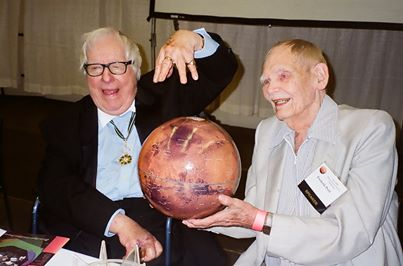
(8) COMICS SECTION.
- Thatababy has a very unsafe imaginary friend.
- Dog Eat Doug for November 26 is an Alien reference, too.
(9) DISK JOCKEY. Far Out Magazine’s list of “The 10 best-selling DVDs of all time” is composed entirely of sf and fantasy films – though that’s not the common denominator that caught the writer’s eye.
…Understandably, the entire list is made up of children’s flicks, or, at the least, movies targeted at younger audiences, with Disney being behind half of the films on the list, including the three Pixar movies The Incredibles, Cars and Finding Nemo, which sold a grand total of 77,500,000 DVD copies. In addition, Disney was also behind the first two movies in the live-action Pirates of the Caribbean series, with the Johnny Depp-led films selling over 32 million copies.
Elsewhere, there are two superhero movies on the list, one from Marvel and the other from DC. The 2008 Christopher Nolan film The Dark Knight sold 19,200,000 copies, just 300,000 under how many Sam Raimi and his team managed to shift for the Tobey Maguire-led Spider-Man film from 2002….
(10) ANIME EXPLORATIONS. Episode 14 of the Anime Explorations Podcast is up, and includes a Kumoricon 2023 Con Report. The podcast can be found here: “Anime Explorations Podcast: Episode 14: Tsukhime (2003)”.

(11) GONE WITH THE WIND. “‘We are heartbroken’: Coober Pedy loses its famous drive-in – but the opal town has plans for take two” reports the Guardian.
The closure of a drive-in rarely makes the news but Coober Pedy’s is no ordinary drive-in. Since it was built by volunteers in 1965 it has served as a meeting point for the remote opal mining community, itself immortalised on film in The Adventures of Priscilla, Queen of the Desert and Mad Max Beyond Thunderdome. For decades miners turned up in their utes, still filled with mining equipment and gelignite. As beer was sold at the drive-in, the operators had to ban patrons from bringing along explosives.
But curtains have now closed on South Australia’s last drive-in after furious winds reaching almost 120km/h ripped through the town on 15 November, leaving the screen in tatters. More than half the panels and the underlying structure were ripped away by the wind.
“We are heartbroken as a community,” states the drive-in’s website….
(12) NOT TUNED IN. “Christopher Nolan names the genre he doesn’t ‘really get’” in Far Out Magazine. (Whew, I was worried for a second he might say sff, which would have really been disturbing after five Nebula Award nominations and a win for Inception.)
Yet, while Nolan is a considerable fan of all types of cinema, there is one genre he has admitted that he doesn’t “really get”, confessing that he has little love for the humble movie musical.
“I don’t really get musicals,” he told Scott Holleran, “I always used to say that I would do anything except musicals. Having said which, now that I have kids, I’m re-appraising that. There are a lot of films that [I saw] as a kid that I didn’t really remember as musicals. Like Willy Wonka and the Chocolate Factory. I completely forgot that it was a musical. I watched it again a few weeks ago and I saw it in a different way. I think as a kid you just accept the groundwork of the film you’re seeing, you’re not judging it as a genre, and you’re much more open”…
(13) FIFTY YEARS OF ZINES. Gothamist reports on a new exhibit at the Brooklyn Museum called Copy Machine Manifestos: Artists Who Make Zines in “Zines are back: Brooklyn Museum exhibit looks at decades of artistry”.
…It includes more than 800 images from the world of zines from the 1970s to today, organized into categories like “The Punk Explosion” and “Critical Promiscuity.”…
…Zines actually began in the 1930s, in mimeograph form. They were the same: cheap, quick, ephemeral and usually self-made publications, but they were related to fan culture.
They started around science fiction fandom, then moved into comic book fandom, then ultimately, in the early ’70s, moved into rock fandom.
There are fan communities that are interested in certain comics or certain types of music.
Part of the ethos of these fanzines is that they’re very open to reader feedback and participation. They welcome correspondence, they welcome contributions, they welcome mentioning other types of zines….
(14) LOSCON FANZINE TABLE. Richard Man took these photos of the fanzine table at this weekend’s Loscon.
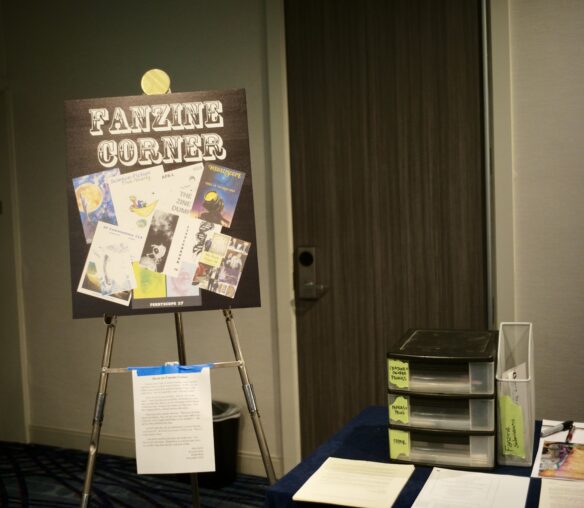
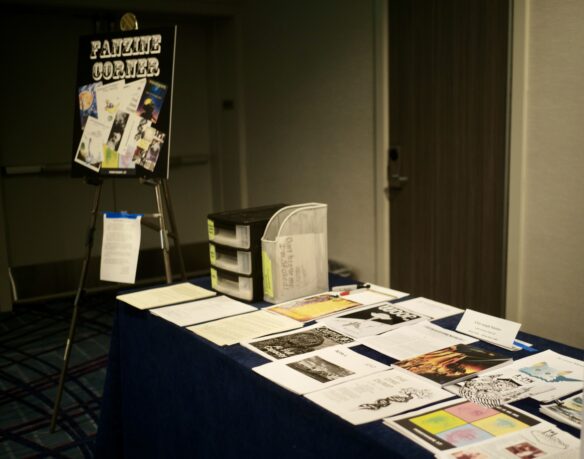
(15) VIDEO OF THE DAY. “Carrie Fisher Roasts George Lucas at AFI Life Achievement Award” in 2005. Four minutes in the fire and he’s well-done.
[Thanks to Andrew Porter, John King Tarpinian, Chris Barkley, Kathy Sullivan, Steven French, Alexander Case, Richard Man, Cat Eldridge, SF Concatenation’s Jonathan Cowie, and Mike Kennedy for some of these stories. Title credit belongs to File 770 contributing editor of the day Daniel Dern.]
Discover more from File 770
Subscribe to get the latest posts sent to your email.

First? Is this what I get for turning 70 yesterday?
It will even post first as soon as I edit out the plus signs in the spaces between your names.
For Pohl, I especially liked The World at the End of Time.
I do treasure the memory of not only meeting Pohl, but being on a panel with him.
(4) Right, sucking up to the GOP at the time. Oh, sorry, I violate a number of those rules in my next novel….
Birthdays: Fred Pohl, who was also a lovely guy to talk to, and came out for fans. He was a speaker at the short-lived Lehigh Valley SF Society in the late seventies, and he and his wife had the room next to my late wife and me in Anaheim in ’96 (and yes, I donated to her campaign for Congress).
But… Space Merchants, silly? May I quote wikipedia, “In a vastly overpopulated world, businesses have taken the place of governments and now hold political power. States exist merely to ensure the survival of huge trans-national corporations. Advertising has become hugely aggressive and by far the best-paid profession. Through advertising, the public is constantly deluded into thinking that the quality of life is improved by all the products placed on the market.”
Exactly how is that not a perfect description of Right Now in the Real World?
(12) Um, er, why only mention kids’ movies. Sorry, I think of Danny Kaye, and, of course, Rogers and Hammerstein – South Pacific (and if you’ve never seen it, GO THOU AND SEE IT), and the others, Oklahoma, Carousel… and so many others.
(13) I deeply appreciate that they actually did research, and note that they all came from us.
(2) That’s a fascinating blog post. It seems most adaptations (books, comics, movies) often aren’t “Howardian.” I’m wondering which ones came closest.
As far as I remember, I didn’t read Robert Jordan’s Conan novels, so I can’t speak to their quality. But at least his version of Conan didn’t tug on his braid. 😉 But I also don’t blame Robert Jordan for the titles because almost all the Tor Conan pastiches followed the “Conan the Adjective” format. I’m sure the authors had no choice in the matter.
(7) I still remember being in the Towson Library, checking the cart, with books waiting to be reshelved, and finding “Gateway” there. I picked it up, read the back cover copy, and decided to check it out. A lucky find! And one less book for the librarian to reshelve.
4). 13 rules for reading Ayn Rand:
1. Don’t expect good prose.
2. Don’t expect anything approaching subtlety.
3. Don’t expect to find objective (not Objectivist) reasoning.
4. Don’t read to find well-rounded characterization.
5. Don’t read to your children at bedtime.
6. Don’t send a copy to Paul Ryan (he’s already got one).
7. Don’t find her listed winning any major literary awards.
8. Don’t lie sleepless at night. Read one of her books and sleep instantly.
9. Don’t expect to find a lovingly read, heavily underlined copy on Bernie Sanders’ bedside table.
10. Don’t expect her to show up in the MCU.
11. Don’t worry about who John Galt is.
12. Don’t confuse Howard Roark with Frank Lloyd Wright.
13. Don’t read.
Troyce: What, you don’t appreciate straw characters, with the puppet strings showing?
0) When a Fremen’s not engaged in his employment (his employment)
Or maturing his rebellious little plans (little plans)…
(4) One crazy lady, that.
0) A Sandworm’s lot is not an ‘appy one (an ‘appy one)
7) Pohl is definitely a favorite of mine. I did find “Mars Plus” to be disappointing compared to “Man Plus” which was great. At MilPhil I was looking for the registration desk and Fred pointed me in the right direction (and at my first con, I listened to him read “Day Million,” which was just great to hear (even though I had already read it)).
Characterizing Ayn Rand’s philosophy with “belief in individualism and the pursuit of material gain” shows a weak understanding of it. She valued material gain, but it wasn’t in her top two. “Individualism and reason” would be more accurate. In The Fountainhead, Howard Roark takes a job as a quarry worker rather than compromise his professional principles. In Atlas Shrugged, Francisco D’Anconia systematically dismantles his huge fortune.
Gary McGrath: ah, yes, not compromising her principles. This is the Ayn Rand who, I understand, lived out her last years on (socialist!) social security and (socialist!) Medicare.
(0) on a branch of a genetic tree, a Bene Gesserit Sat, singing
Jabbar, Gom Jabbar, Gom Jabbar
c4c
I lied.
4) The Far Out Magazine article helpfully includes a link to Ayn Rand’s original “Screen Guide for Americans“. The guide includes those 13 bullet points. It also expands upon them with examples and narratives that occasionally demonstrate a more nuanced perspective than Ms. Rand is typically credited with having.
The guide is predictable in many ways. But it is more interesting than is belied by the bullet points.
Regards,
Dann
The most cogent reason for restricting the interference of government is the great evil of adding unnecessarily to its power. – John Stuart Mill
We’re very wide awake, the scroll and I!
(4) They left out “DO model all your protagonists after serial killers”.
@Mark
It was even worse than that, Rand never paid into Social Security as she was self-employed and was not required to pay into Social Security, she received Social Security based on her Ex-Husband’s Contributions. (A Ex-Spouse can claim Social Security on a deceased Ex’s contributions as long as they do not re-marry before they turn age 60)
Thomas the Red: Beginning in the mid-Fifties self-employed people paid their Social Security contributions in the form of a “self-employment tax” on their net income, which was and is assessed when they file their annual income tax return. Ayn Rand would have been liable for that.
@mark
I always felt it was worse that she was a smoker who pushed all her followers to smoke as a life affirming habit, using her apparently formidable authority over them and her apparently awesome powers of rationalization to fabricate justifications that it was rational to smoke and that the medical recommendations against it were based on flimsy reasoning that it was fine to ignore – but when she got lung cancer herself, she quit smoking but refused to tell her followers she had done so or encourage them to do so.
Whether or not she paid into social security, unlike SS, Medicare was a brand new entitlement which Rand never paid into but was content to take from.
Jayn: What is the source of your information about what government benefits Rand received?
I didn’t really care until this misinformation about her social security contribution was presented. Is the Medicare statement provable?
7) Pohl: I recently read and enjoyed the Starchild Trilogy (co-written with Jack Williamson). Growing up, enjoyed The Tunnel Under The World, and The Age Of The Pussyfoot (both in Galaxy), loved Man Plus, and of course many more.
(0) (with apologies for imperfect lyric match)
Here’s a Howdy, Dune!
If I marry Princess Irul’n,
Let the precious tears I’m shedding
Fill my stillsuit ’til our wedding…
Here’s a sandy, spicey Howdy, Dune!
Very nice that the scroll with the item about not getting musicals has a comment section that’s steadily turning into one. (Yes, operettas are musicals).
A cartoon that John Shirley just posted on Mastodon seems timely here!
@Mike: I believe I read it in one of her biographies. This is what I could find on Google Books:
https://books.google.com/books?id=G7VEd_3b0WUC&printsec=frontcover#v=onepage&q=medicare&f=false
Reading it over, I see that I do her an injustice, in that Medicare had existed since 1965 and she took it in 1976, so she may have indeed paid into the system between 1965-1976. I would still guess that the aftermath of removing a cancerous tumor from her lungs and the aftercare that enabled her survival meant she probably got more from the system than she ultimately paid in.
Obligatory genre-related quote:
While this may be true, it would be true of anyone who used Medicare in its early years. And I personally wouldn’t deny a social benefit to a hypocrite, so there’s that as well.
@Mike Glyer–From Wikipedia:
Link
Ayn Rand
Wikipedia is generally reliable about basic facts, and there are links to the sources.
Nancy Sauer:
I’m reminded of the comment going around social media to the effect of “Is it bad that I believe even Nazis deserve universal health care, or is it bad that I hope they need it?”
7) My first Pohl oddly enough was one of my favorites but is not one of the superstars of his canon–THE COMING OF THE QUANTUM CATS. A multiverse novel, so it attracted me immediately…
@Nancy Sauer: I absolutely do not grudge Rand Medicare. I do despise her lifetime public characterization of people who support systems like Medicare and use them in good faith as corrupt manipulators, mindless sheep and/or moochers.
(15) Seen it before. Still worth a re-watch.
I didn’t enroll in Medicare (that is, using Medicare for my health coverage) until I was 66, and didn’t start drawing Social Security until I turn 70,
On the the other hand I started paying Social Security and Medicare taxes more than four decades earlier (even when I was self-employed). There was no “enrollment” involved there.
@John Lorentz–
I suspect what that “enroll her in” means is “sign her up for benefits.”
That’s what I’m assuming, also.
Based on the dates, she’d been paying Medicare taxes for about a decade, and social security taxes for far longer.
She paid into it, but she sneered at anyone else who accepted the benefits.
She was good at sneering.
That she was good at sneering doesn’t change the fact that she was a hypocrite on this.
Ayn Rand’s highest ideal was that she should have gotten her toy chicken back.
(4) The only Ayn Rand book I’ve read I did in fact read as a teenager, and I remember enjoying it a great deal. That was “We, the Living”, a novel about the Russian Revolution, and it interested me greatly because I was just starting to be interested in Russian history, language, and culture, and found the idea of the Russian Revolution romantic, in the broad sense of the word. (There was also a human romance at the center of the novel.) I don’t remember noticing anything particularly ideological in it, except a disapproval of the Communists, which I shared in the late 1960s when I read it, and share to this day. (I have always wished that Kerensky could have held onto power in 1917; there might have been some unfulfilled hope for Russia’s future there.)
The origins of the criticisms against Ayn Rand regarding SS/Medicare probably lie in a 2011 article by Joshua Holland published by Alternet. He uses a lot of loaded language, makes some gross assumptions, and omits relevant data.
This is a reasonably contemporary rebuttal. It also uses some loaded language, FWIW.
She did pay SS taxes for many years. The amount of money she probably received was far less than what she paid in taxes. The rebuttal also points out that her estate was sufficient to help endow a non-profit and was potentially worth $1 million in 1982. So it’s hard to conclude that eight years’ worth of SS payments and Medicaid would have made a difference between how she died and being penniless. Certainly, her estate would have been smaller, but she wouldn’t have been penniless.
David Emery has a piece over at Snopes (of all places!) that debunks the idea that her acceptance of benefits from those programs was hypocritical. It was consistent with her stated philosophy. Essentially, if the government takes money to which it has no moral claim, then it is moral for the people who paid those taxes to recoup the funds that were immorally (in her opinion) taken in the first place.
I’ve only read Atlas Shrugged. I was in my late 20s. And that was enough of her work for me. I didn’t need to read extended paeans to her desire for the “perfect man”. It was really pretty dry reading for extended sections.
In my opinion, “Atlas Shrugged” is more of a case against grifters. There were union laborers working alongside John Galt to save his furnaces that were treated with respect and appreciation. The union leaders that were lining their own pockets in negotiations with employers and the government were another story. The same goes for the corporate leaders influencing government regulations to lock in their positions in the market. Both types of leaders were grifters.
Descriptions of Rand as a defender of “greed” miss the mark. She found the accumulation of wealth via an honorable process of exchanging value for like value to be moral as it incentivizes constructive relationships and behavior. She viewed the accumulation of wealth via grift, graft, and other dishonorable means as destructive and immoral.
Regards,
Dann
When law and duty are one, united by religion, you never become fully conscious, fully aware of yourself. You are always a little less than an individual. – Frank Herbert